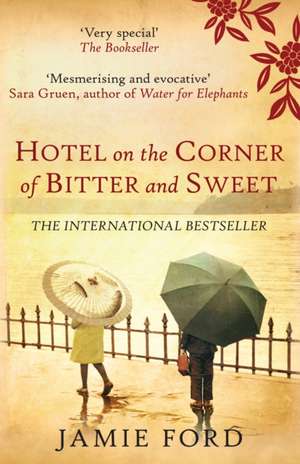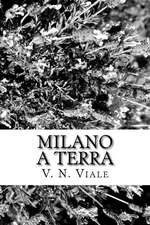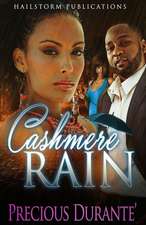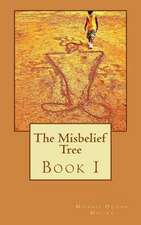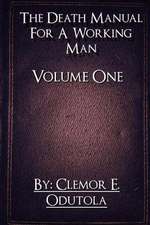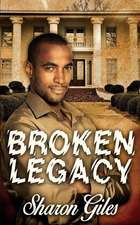Hotel On The Corner Of Bitter And Sweet
Autor Jamie Forden Limba Engleză Paperback – 26 feb 2012
| Toate formatele și edițiile | Preț | Express |
|---|---|---|
| Paperback (2) | 49.64 lei 3-5 săpt. | +20.16 lei 10-14 zile |
| ALLISON & BUSBY – 26 feb 2012 | 49.64 lei 3-5 săpt. | +20.16 lei 10-14 zile |
| BALLANTINE BOOKS – 30 sep 2009 | 97.74 lei 3-5 săpt. |
Preț: 49.64 lei
Preț vechi: 58.12 lei
-15% Nou
Puncte Express: 74
Preț estimativ în valută:
9.50€ • 9.94$ • 7.86£
9.50€ • 9.94$ • 7.86£
Carte disponibilă
Livrare economică 15-29 martie
Livrare express 04-08 martie pentru 30.15 lei
Preluare comenzi: 021 569.72.76
Specificații
ISBN-13: 9780749010720
ISBN-10: 074901072X
Pagini: 448
Dimensiuni: 129 x 198 x 30 mm
Greutate: 0.28 kg
Editura: ALLISON & BUSBY
Colecția Allison & Busby
Locul publicării:London, United Kingdom
ISBN-10: 074901072X
Pagini: 448
Dimensiuni: 129 x 198 x 30 mm
Greutate: 0.28 kg
Editura: ALLISON & BUSBY
Colecția Allison & Busby
Locul publicării:London, United Kingdom
Extras
The Panama Hotel (1986)
Old Henry Lee stood transfixed by all the commotion at the Panama Hotel. What had started as a crowd of curious onlookers eyeballing a television news crew had now swollen into a polite mob of shoppers, tourists, and a few punk-looking street kids, all wondering what the big deal was. In the middle of the crowd stood Henry, shopping bags hanging at his side. He felt as if he were waking from a long forgotten dream. A dream he’d once had as a little boy.
The old Seattle landmark was a place he’d visited twice in his lifetime. First when he was only twelve years old, way back in 1942—“the war years” he liked to call them. Even then the old bachelor hotel had stood as a gateway between Seattle’s Chinatown and Nihonmachi, Japantown. Two outposts of an old-world conflict—where Chinese and Japanese immigrants rarely spoke to one another, while their American-born children often played kick the can in the streets together. The hotel had always been a perfect landmark. A perfect meeting place—where he’d once met the love of his life.
The second time was today. It was 1986, what, forty-plus years later? He’d stopped counting the years as they slipped into memory. After all, he’d spent a lifetime between these bookended visits. A marriage. The birth of an ungrateful son. Cancer, and a burial. He missed his wife, Ethel. She’d been gone six months now. But he didn’t miss her as much as you’d think, as bad as that might sound. It was more like quiet relief really. Her health had been bad—no, worse than bad. The cancer in her bones had been downright crippling, to both of us, he thought.
For the last seven years Henry had fed her, bathed her, helped her to the bathroom when she needed to go, and back again when she was all through. He took care of her night and day, 24/7 as they say these days. Marty, his son, thought his mother should have been put in a home, but Henry would have none of it. “Not in my lifetime,” Henry said, resisting. Not just because he was Chinese (though that was a part of his resistance). The Confucian ideal of filial piety—respect and reverence for one’s parents—was a cultural relic not easily discarded by Henry’s generation. He’d been raised to care for loved ones, personally, and to put someone in a home was unacceptable. What his son, Marty, never fully understood was that deep down there was an Ethel-shaped hole in Henry’s life, and without her, all he felt was the draft of loneliness, cold and sharp, the years slipping away like blood from a wound that never heals.
Now she was gone for good. She needed to be buried, Henry thought, the traditional Chinese way, with food offerings, longevity blankets, and prayer ceremonies lasting several days—despite Marty’s fit about cremating her. He was so modern. He’d been seeing a counselor and dealing with his mother’s death through an online support group, whatever that was. Going online sounded like talking to no one, which Henry had some firsthand experience in—in real life. It was lonely. Almost as lonely as Lake View Cemetery, where he’d buried Ethel. She now had a gorgeous view of Lake Washington, and was interred with Seattle’s other Chinese notables, like Bruce Lee and his own son, Brandon. But in the end, each of them occupied a solitary grave. Alone forever. It didn’t matter who your neighbors were. They didn’t talk back.
When night fell, and it did, Henry chatted with his wife, asking her how her day was. She never replied, of course. “I’m not crazy or anything,” Henry would say to no one, “just open-minded. You never know who’s listening.” Then he’d busy himself pruning his Chinese palm or evergreen—houseplants whose brown leaves confessed his months of neglect. But now he had time once again. Time to care for something that would grow stronger for a change.
Occasionally, though, he’d wonder about statistics. Not the cancer mortality rates that had caught up with dear Ethel. Instead he thought about himself, and his time measured on some life insurance actuarial table. He was only fifty-six—a young man by his own standards. But he’d read in Newsweek about the inevitable decline in the health of a surviving spouse his age. Maybe the clock was ticking? He wasn’t sure, because as soon as Ethel passed, time began to crawl, clock or no clock.
He’d agreed to an early retirement deal at Boeing Field and now had all the time in the world, and no one to share the hours with. No one with whom to walk down to the Mon Hei bakery for yuet beng, carrot mooncakes, on cool autumn evenings.
Instead here he was, alone in a crowd of strangers. A man between lifetimes, standing at the foot of the Panama Hotel once again. Following the cracked steps of white marble that made the hotel look more like an Art Deco halfway house. The establishment, like Henry, seemed caught between worlds. Still, Henry felt nervous and excited, just like he had been as a boy, whenever he walked by. He’d heard a rumor in the marketplace and wandered over from the video store on South Jackson. At first he thought there was some kind of accident because of the growing size of the crowd. But he didn’t hear or see anything, no sirens wailing, no flashing lights. Just people drifting toward the hotel, like the tide going out, pulling at their feet, propelling them forward, one step at a time.
As Henry walked over, he saw a news crew arrive and followed them inside. The crowd parted as camera-shy onlookers politely stepped away, clearing a path. Henry followed right behind, shuffling his feet so as not to step on anyone, or in turn be stepped upon, feeling the crowd press back in behind him. At the top of the steps, just inside the lobby, the hotel’s new owner announced, “We’ve found something in the basement.”
Found what? A body perhaps? Or a drug lab of some kind? No, there’d be police officers taping off the area if the hotel were a crime scene.
Before the new owner, the hotel had been boarded up since 1950, and in those years, Chinatown had become a ghetto gateway for tongs—gangs from Hong Kong and Macau. The city blocks south of King Street had a charming trashiness by day; the litter and slug trails on the sidewalk were generally overlooked as tourists peered up at egg-and-dart architecture from another era. Children on field trips, wrapped in colorful coats and hats, held hands as they followed their noses to the mouthwatering sight of barbecue duck in the windows, hanging red crayons melting in the sun. But at night, drug dealers and bony, middle-aged hookers working for dime bags haunted the streets and alleys. The thought of this icon of his childhood becoming a makeshift crack house made him ache with a melancholy he hadn’t felt since he held Ethel’s hand and watched her exhale, long and slow, for the last time.
Precious things just seemed to go away, never to be had again.
As he took off his hat and began fanning himself with the threadbare brim, the crowd pushed forward, pressing in from the rear. Flashbulbs went off. Standing on his tippy toes, he peered over the shoulder of the tall news reporter in front of him.
The new hotel owner, a slender Caucasian woman, slightly younger than Henry, walked up the steps holding . . . an umbrella? She popped it open, and Henry’s heart beat a little faster as he saw it for what it was. A Japanese parasol, made from bamboo, bright red and white—with orange koi painted on it, carp that looked like giant goldfish. It shed a film of dust that floated, suspended momentarily in the air as the hotel owner twirled the fragile-looking artifact for the cameras. Two more men brought up a steamer trunk bearing the stickers of foreign ports: Admiral Oriental Lines out of Seattle and Yokohama, Tokyo. On the side of the trunk was the name Shimizu, hand-painted in large white letters. It was opened for the curious crowd. Inside were clothing, photo albums, and an old electric rice cooker. The new hotel owner explained that in the basement she had discovered the belongings of thirty-seven Japanese families who she presumed had been persecuted and taken away. Their belongings had been hidden and never recovered—a time capsule from the war years.
Henry stared in silence as a small parade of wooden packing crates and leathery suitcases were hauled upstairs, the crowd marveling at the once-precious items held within: a white communion dress, tarnished silver candlesticks, a picnic basket—items that had collected dust, untouched, for forty-plus years. Saved for a happier time that never came.
The more Henry thought about the shabby old knickknacks, the forgotten treasures, the more he wondered if his own broken heart might be found in there, hidden among the unclaimed possessions of another time. Boarded up in the basement of a condemned hotel. Lost, but never forgotten.
From the Hardcover edition.
Old Henry Lee stood transfixed by all the commotion at the Panama Hotel. What had started as a crowd of curious onlookers eyeballing a television news crew had now swollen into a polite mob of shoppers, tourists, and a few punk-looking street kids, all wondering what the big deal was. In the middle of the crowd stood Henry, shopping bags hanging at his side. He felt as if he were waking from a long forgotten dream. A dream he’d once had as a little boy.
The old Seattle landmark was a place he’d visited twice in his lifetime. First when he was only twelve years old, way back in 1942—“the war years” he liked to call them. Even then the old bachelor hotel had stood as a gateway between Seattle’s Chinatown and Nihonmachi, Japantown. Two outposts of an old-world conflict—where Chinese and Japanese immigrants rarely spoke to one another, while their American-born children often played kick the can in the streets together. The hotel had always been a perfect landmark. A perfect meeting place—where he’d once met the love of his life.
The second time was today. It was 1986, what, forty-plus years later? He’d stopped counting the years as they slipped into memory. After all, he’d spent a lifetime between these bookended visits. A marriage. The birth of an ungrateful son. Cancer, and a burial. He missed his wife, Ethel. She’d been gone six months now. But he didn’t miss her as much as you’d think, as bad as that might sound. It was more like quiet relief really. Her health had been bad—no, worse than bad. The cancer in her bones had been downright crippling, to both of us, he thought.
For the last seven years Henry had fed her, bathed her, helped her to the bathroom when she needed to go, and back again when she was all through. He took care of her night and day, 24/7 as they say these days. Marty, his son, thought his mother should have been put in a home, but Henry would have none of it. “Not in my lifetime,” Henry said, resisting. Not just because he was Chinese (though that was a part of his resistance). The Confucian ideal of filial piety—respect and reverence for one’s parents—was a cultural relic not easily discarded by Henry’s generation. He’d been raised to care for loved ones, personally, and to put someone in a home was unacceptable. What his son, Marty, never fully understood was that deep down there was an Ethel-shaped hole in Henry’s life, and without her, all he felt was the draft of loneliness, cold and sharp, the years slipping away like blood from a wound that never heals.
Now she was gone for good. She needed to be buried, Henry thought, the traditional Chinese way, with food offerings, longevity blankets, and prayer ceremonies lasting several days—despite Marty’s fit about cremating her. He was so modern. He’d been seeing a counselor and dealing with his mother’s death through an online support group, whatever that was. Going online sounded like talking to no one, which Henry had some firsthand experience in—in real life. It was lonely. Almost as lonely as Lake View Cemetery, where he’d buried Ethel. She now had a gorgeous view of Lake Washington, and was interred with Seattle’s other Chinese notables, like Bruce Lee and his own son, Brandon. But in the end, each of them occupied a solitary grave. Alone forever. It didn’t matter who your neighbors were. They didn’t talk back.
When night fell, and it did, Henry chatted with his wife, asking her how her day was. She never replied, of course. “I’m not crazy or anything,” Henry would say to no one, “just open-minded. You never know who’s listening.” Then he’d busy himself pruning his Chinese palm or evergreen—houseplants whose brown leaves confessed his months of neglect. But now he had time once again. Time to care for something that would grow stronger for a change.
Occasionally, though, he’d wonder about statistics. Not the cancer mortality rates that had caught up with dear Ethel. Instead he thought about himself, and his time measured on some life insurance actuarial table. He was only fifty-six—a young man by his own standards. But he’d read in Newsweek about the inevitable decline in the health of a surviving spouse his age. Maybe the clock was ticking? He wasn’t sure, because as soon as Ethel passed, time began to crawl, clock or no clock.
He’d agreed to an early retirement deal at Boeing Field and now had all the time in the world, and no one to share the hours with. No one with whom to walk down to the Mon Hei bakery for yuet beng, carrot mooncakes, on cool autumn evenings.
Instead here he was, alone in a crowd of strangers. A man between lifetimes, standing at the foot of the Panama Hotel once again. Following the cracked steps of white marble that made the hotel look more like an Art Deco halfway house. The establishment, like Henry, seemed caught between worlds. Still, Henry felt nervous and excited, just like he had been as a boy, whenever he walked by. He’d heard a rumor in the marketplace and wandered over from the video store on South Jackson. At first he thought there was some kind of accident because of the growing size of the crowd. But he didn’t hear or see anything, no sirens wailing, no flashing lights. Just people drifting toward the hotel, like the tide going out, pulling at their feet, propelling them forward, one step at a time.
As Henry walked over, he saw a news crew arrive and followed them inside. The crowd parted as camera-shy onlookers politely stepped away, clearing a path. Henry followed right behind, shuffling his feet so as not to step on anyone, or in turn be stepped upon, feeling the crowd press back in behind him. At the top of the steps, just inside the lobby, the hotel’s new owner announced, “We’ve found something in the basement.”
Found what? A body perhaps? Or a drug lab of some kind? No, there’d be police officers taping off the area if the hotel were a crime scene.
Before the new owner, the hotel had been boarded up since 1950, and in those years, Chinatown had become a ghetto gateway for tongs—gangs from Hong Kong and Macau. The city blocks south of King Street had a charming trashiness by day; the litter and slug trails on the sidewalk were generally overlooked as tourists peered up at egg-and-dart architecture from another era. Children on field trips, wrapped in colorful coats and hats, held hands as they followed their noses to the mouthwatering sight of barbecue duck in the windows, hanging red crayons melting in the sun. But at night, drug dealers and bony, middle-aged hookers working for dime bags haunted the streets and alleys. The thought of this icon of his childhood becoming a makeshift crack house made him ache with a melancholy he hadn’t felt since he held Ethel’s hand and watched her exhale, long and slow, for the last time.
Precious things just seemed to go away, never to be had again.
As he took off his hat and began fanning himself with the threadbare brim, the crowd pushed forward, pressing in from the rear. Flashbulbs went off. Standing on his tippy toes, he peered over the shoulder of the tall news reporter in front of him.
The new hotel owner, a slender Caucasian woman, slightly younger than Henry, walked up the steps holding . . . an umbrella? She popped it open, and Henry’s heart beat a little faster as he saw it for what it was. A Japanese parasol, made from bamboo, bright red and white—with orange koi painted on it, carp that looked like giant goldfish. It shed a film of dust that floated, suspended momentarily in the air as the hotel owner twirled the fragile-looking artifact for the cameras. Two more men brought up a steamer trunk bearing the stickers of foreign ports: Admiral Oriental Lines out of Seattle and Yokohama, Tokyo. On the side of the trunk was the name Shimizu, hand-painted in large white letters. It was opened for the curious crowd. Inside were clothing, photo albums, and an old electric rice cooker. The new hotel owner explained that in the basement she had discovered the belongings of thirty-seven Japanese families who she presumed had been persecuted and taken away. Their belongings had been hidden and never recovered—a time capsule from the war years.
Henry stared in silence as a small parade of wooden packing crates and leathery suitcases were hauled upstairs, the crowd marveling at the once-precious items held within: a white communion dress, tarnished silver candlesticks, a picnic basket—items that had collected dust, untouched, for forty-plus years. Saved for a happier time that never came.
The more Henry thought about the shabby old knickknacks, the forgotten treasures, the more he wondered if his own broken heart might be found in there, hidden among the unclaimed possessions of another time. Boarded up in the basement of a condemned hotel. Lost, but never forgotten.
From the Hardcover edition.
Recenzii
"Mesmerizing and evocative, Hotel on the Corner of Bitter and Sweet is a tale of conflicted loyalties, devotion, as well as a vibrant portrait of Seattle's Nihonmachi district in its heyday."
-- Sara Gruen, New York Times bestselling author of Water for Elephants
“A tender and satisfying novel set in a time and a place lost forever, Hotel on the Corner of Bitter and Sweet gives us a glimpse of the damage that is caused by war--not the sweeping damage of the battlefield, but the cold, cruel damage to the hearts and humanity of individual people. Especially relevant in today's world, this is a beautifully written book that will make you think. And, more importantly, it will make you feel."
--Garth Stein, New York Times bestselling author of The Art of Racing in the Rain
“Jamie Ford's first novel explores the age-old conflicts between father and son, the beauty and sadness of what happened to Japanese Americans in the Seattle area during World War II, and the depths and longing of deep-heart love. An impressive, bitter, and sweet debut.”
–Lisa See, bestselling author of Snow Flower and the Secret Fan
"Sentimental, heartfelt novel portrays two children separated during the internment of Japanese-Americans during World War II. In 1940s Seattle, ethnicities do not mix. Whites, blacks, Chinese and Japanese live in separate neighborhoods, and their children attend different schools. When Henry Lee’s staunchly nationalistic father pins an “I am Chinese” button to his 12-year-old son’s shirt and enrolls him in an all-white prep school, Henry finds himself friendless and at the mercy of schoolyard bullies. His salvation arrives in the form of Keiko, a Japanese girl with whom Henry forms an instant—and forbidden—bond. The occasionally sappy prose tends to overtly express subtleties that readers would be happier to glean for themselves, but the tender relationship between the two young people is moving. The older Henry, a recent widower living in 1980s Seattle, reflects in a series of flashbacks on his burgeoning romance with Keiko and its abrupt ending when her family was evacuated. A chance discovery of items left behind by Japanese-Americans during the evacuation inspires Henry to share his and Keiko’s story with his own son, in hopes of preventing the dysfunctional parent-child relationship he experienced with his own father. The major problem here is that Henry’s voice always sounds like that of a grown man, never quite like that of a child; the boy of the flashbacks is jarringly precocious and not entirely credible. Still, the exploration of Henry’s changing relationship with his family and with Keiko will keep most readers turning pages while waiting for the story arc to come full circle, despite the overly flowery portrait of young love, cruel fate and unbreakable bonds. A timely debut that not only reminds readers of a shameful episode in American history, but cautions us to examine the present and take heed we don’t repeat those injustices." - Kirkus Reviews
"Fifth-grade scholarship students and best friends Henry and Keiko are the only Asians in their Seattle elementary school in 1942. Henry is Chinese, Keiko is Japanese, and Pearl Harbor has made all Asians-even those who are American born-targets for abuse. Because Henry's nationalistic father has a deep-seated hatred for Japan, Henry keeps his friendship with and eventual love for Keiko a secret. When Keiko's family is sent to an internment camp in Idaho, Henry vows to wait for her. Forty years later, Henry comes upon an old hotel where the belongings of dozens of displaced Japanese families have turned up in the basement, and his love for Keiko is reborn. In his first novel, award-winning short-story writer Ford expertly nails the sweet innocence of first love, the cruelty of racism, the blindness of patriotism, the astonishing unknowns between parents and their children, and the sadness and satisfaction at the end of a life well lived. The result is a vivid picture of a confusing and critical time in American history. Recommended for all fiction collections." - Library Journal
Advance praise for Hotel on the Corner of Bitter and Sweet
“Jamie Ford’s novel Hotel on the Corner of Bitter and Sweet is deeply informed by an intimate knowledge of Seattle during World War II, of the tribulations of Asian peoples during the time of Japanese internment, and even of the Seattle jazz scene of that time. His story of an innocent passion that crosses racial barriers–and then, of the whole life of a man who forsook the girl he loved–is told with an artistic technique that makes emotion inevitable.”
–Louis B. Jones, author of Particles and Luck
“I loved it! Hotel on the Corner of Bitter and Sweet is a beautiful and tender masterpiece. A book everyone will be talking about, and the best book you’ll read this year.”
–Anne Frasier, USA Today bestselling author of Garden of Darkness
“Hotel on the Corner of Bitter and Sweet tells a heartwarming story of fathers and sons, first loves, fate, and the resilient human heart. Set in the ethnic neighborhoods of Seattle during World War II and Japanese American internment camps of the era, the times and places are brought to life by the marvelous, evocative details.”
–Jim Tomlinson, winner of the 2006 Iowa Short Fiction Award and author of Things Kept, Things Left Behind
From the Hardcover edition.
-- Sara Gruen, New York Times bestselling author of Water for Elephants
“A tender and satisfying novel set in a time and a place lost forever, Hotel on the Corner of Bitter and Sweet gives us a glimpse of the damage that is caused by war--not the sweeping damage of the battlefield, but the cold, cruel damage to the hearts and humanity of individual people. Especially relevant in today's world, this is a beautifully written book that will make you think. And, more importantly, it will make you feel."
--Garth Stein, New York Times bestselling author of The Art of Racing in the Rain
“Jamie Ford's first novel explores the age-old conflicts between father and son, the beauty and sadness of what happened to Japanese Americans in the Seattle area during World War II, and the depths and longing of deep-heart love. An impressive, bitter, and sweet debut.”
–Lisa See, bestselling author of Snow Flower and the Secret Fan
"Sentimental, heartfelt novel portrays two children separated during the internment of Japanese-Americans during World War II. In 1940s Seattle, ethnicities do not mix. Whites, blacks, Chinese and Japanese live in separate neighborhoods, and their children attend different schools. When Henry Lee’s staunchly nationalistic father pins an “I am Chinese” button to his 12-year-old son’s shirt and enrolls him in an all-white prep school, Henry finds himself friendless and at the mercy of schoolyard bullies. His salvation arrives in the form of Keiko, a Japanese girl with whom Henry forms an instant—and forbidden—bond. The occasionally sappy prose tends to overtly express subtleties that readers would be happier to glean for themselves, but the tender relationship between the two young people is moving. The older Henry, a recent widower living in 1980s Seattle, reflects in a series of flashbacks on his burgeoning romance with Keiko and its abrupt ending when her family was evacuated. A chance discovery of items left behind by Japanese-Americans during the evacuation inspires Henry to share his and Keiko’s story with his own son, in hopes of preventing the dysfunctional parent-child relationship he experienced with his own father. The major problem here is that Henry’s voice always sounds like that of a grown man, never quite like that of a child; the boy of the flashbacks is jarringly precocious and not entirely credible. Still, the exploration of Henry’s changing relationship with his family and with Keiko will keep most readers turning pages while waiting for the story arc to come full circle, despite the overly flowery portrait of young love, cruel fate and unbreakable bonds. A timely debut that not only reminds readers of a shameful episode in American history, but cautions us to examine the present and take heed we don’t repeat those injustices." - Kirkus Reviews
"Fifth-grade scholarship students and best friends Henry and Keiko are the only Asians in their Seattle elementary school in 1942. Henry is Chinese, Keiko is Japanese, and Pearl Harbor has made all Asians-even those who are American born-targets for abuse. Because Henry's nationalistic father has a deep-seated hatred for Japan, Henry keeps his friendship with and eventual love for Keiko a secret. When Keiko's family is sent to an internment camp in Idaho, Henry vows to wait for her. Forty years later, Henry comes upon an old hotel where the belongings of dozens of displaced Japanese families have turned up in the basement, and his love for Keiko is reborn. In his first novel, award-winning short-story writer Ford expertly nails the sweet innocence of first love, the cruelty of racism, the blindness of patriotism, the astonishing unknowns between parents and their children, and the sadness and satisfaction at the end of a life well lived. The result is a vivid picture of a confusing and critical time in American history. Recommended for all fiction collections." - Library Journal
Advance praise for Hotel on the Corner of Bitter and Sweet
“Jamie Ford’s novel Hotel on the Corner of Bitter and Sweet is deeply informed by an intimate knowledge of Seattle during World War II, of the tribulations of Asian peoples during the time of Japanese internment, and even of the Seattle jazz scene of that time. His story of an innocent passion that crosses racial barriers–and then, of the whole life of a man who forsook the girl he loved–is told with an artistic technique that makes emotion inevitable.”
–Louis B. Jones, author of Particles and Luck
“I loved it! Hotel on the Corner of Bitter and Sweet is a beautiful and tender masterpiece. A book everyone will be talking about, and the best book you’ll read this year.”
–Anne Frasier, USA Today bestselling author of Garden of Darkness
“Hotel on the Corner of Bitter and Sweet tells a heartwarming story of fathers and sons, first loves, fate, and the resilient human heart. Set in the ethnic neighborhoods of Seattle during World War II and Japanese American internment camps of the era, the times and places are brought to life by the marvelous, evocative details.”
–Jim Tomlinson, winner of the 2006 Iowa Short Fiction Award and author of Things Kept, Things Left Behind
From the Hardcover edition.
Notă biografică
Jamie Ford
